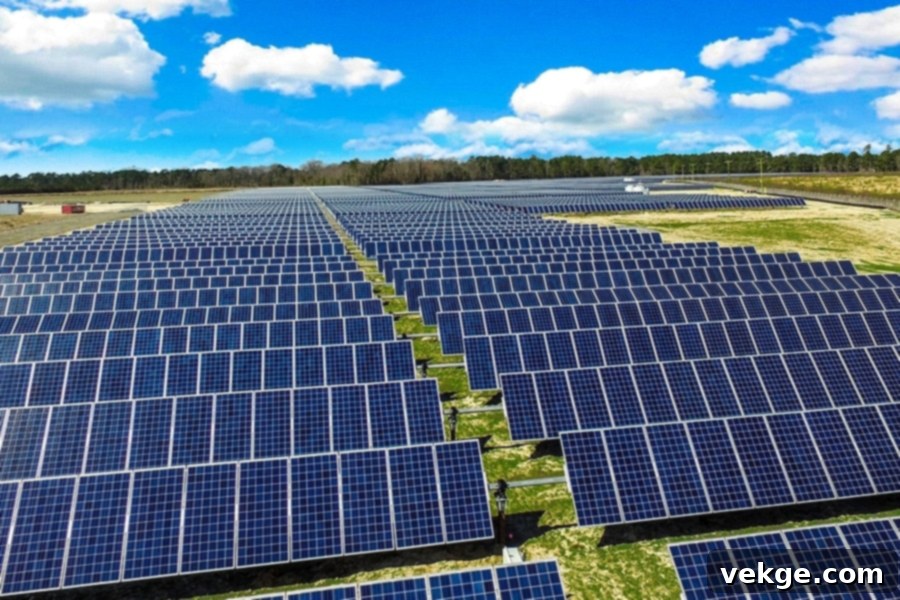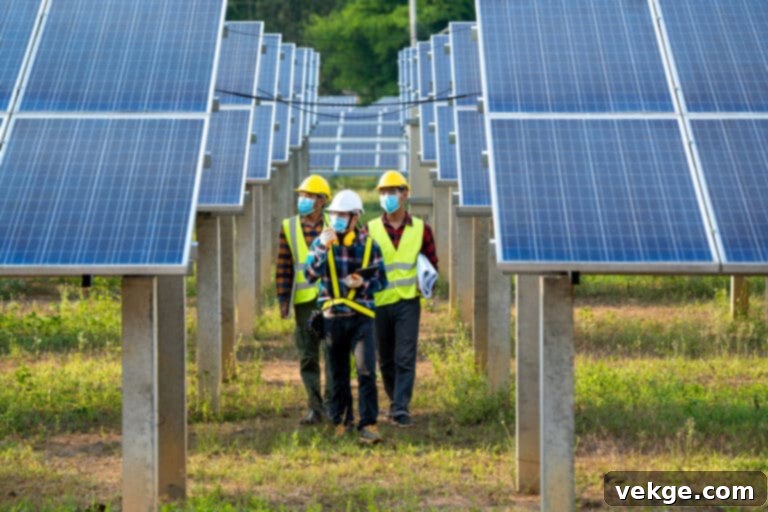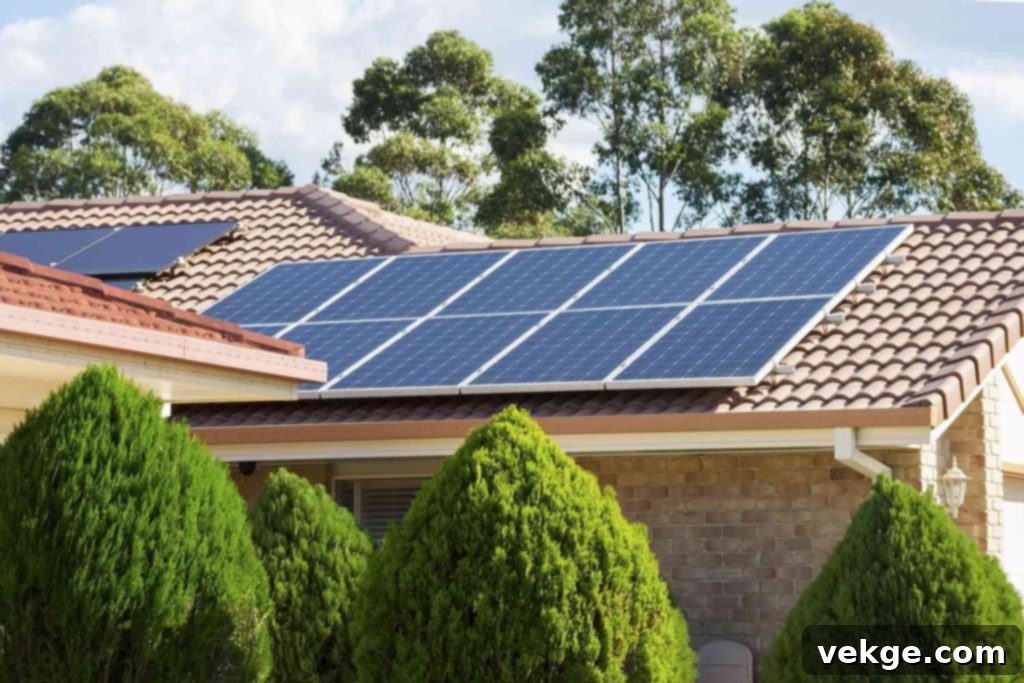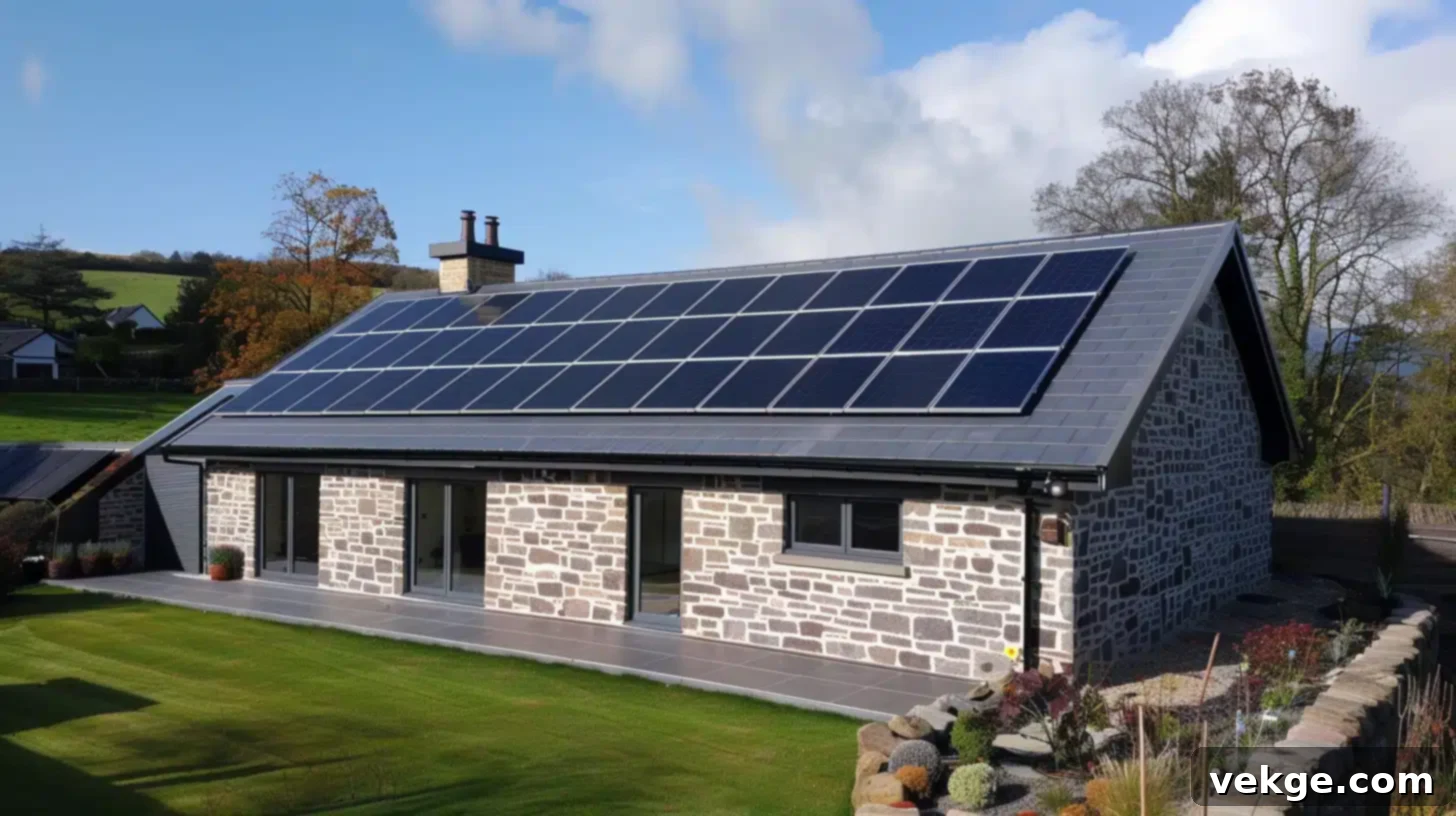The Ultimate Guide to Choosing the Best Solar Panels in the UK for Your Home
Embarking on the journey to integrate solar power into your home is a significant and rewarding decision. As the UK government continues to champion renewable energy initiatives, investing in solar panels has become an increasingly attractive option for homeowners looking to reduce their carbon footprint, lower electricity bills, and enhance energy independence. However, with a growing market comes a myriad of choices, making it crucial to research the top solar manufacturers and understand the key factors that define optimal performance and value for money. This comprehensive guide aims to equip you with the knowledge needed to make an informed decision before taking this vital financial leap.
Why Investing in Solar Panels is a Smart Move for UK Homeowners
Solar panels offer a sustainable and highly cost-effective method to generate your own electricity right from your rooftop. Beyond the obvious environmental benefits of reducing your carbon footprint, they provide a tangible solution to combating ever-rising energy bills. The UK government, through various incentives such as the Smart Export Guarantee (SEG), further sweetens the deal, allowing homeowners to get paid for the excess electricity they feed back into the national grid. With continuous advancements in solar technology leading to higher efficiencies and lower costs, now truly is an opportune moment to invest in a home solar system.
The solar panel installation experts at Green Central understand the nuances of the UK market and are committed to helping homeowners navigate their options. In this article, we’ll delve into some of the best solar panels available, offering insights into their technology, performance, and why they stand out in the competitive UK landscape.
Leading Solar Panel Brands and Models for UK Homes
Choosing the right solar panel brand is paramount to ensuring long-term performance and reliability. Here, we highlight some of the industry leaders known for their innovation, efficiency, and robust warranties, making them excellent choices for UK homeowners.
LONGi Hi-MO Solar Panels: A Blend of Efficiency and Innovation

Efficiency and Performance Tailored for the UK
LONGi Solar has established itself as a global leader in monocrystalline solar technology, and their Hi-MO series panels are renowned for their exceptional efficiency. These panels are specifically engineered with advanced monocrystalline PERC (Passivated Emitter Rear Cell) technology and often incorporate half-cut cell designs. This combination significantly boosts performance, particularly in low-light conditions – a crucial factor for the often cloudy and variable UK climate. The Hi-MO series frequently boasts efficiencies exceeding 20%, placing them among the top performers in the market and ensuring maximum energy harvest even on days with less direct sunlight.
Unrivalled Reliability and Durability
LONGi panels are built with robust construction designed to withstand the unpredictable and sometimes harsh UK weather conditions, from strong winds to heavy rainfall. This commitment to durability is underscored by LONGi’s comprehensive warranty offerings: typically a 25-year linear power output warranty, guaranteeing at least 84.8% of initial power output after 25 years, alongside a solid 12-year product warranty. This extensive coverage provides immense peace of mind for UK homeowners and businesses, assuring long-term reliability and investment protection.
Cutting-Edge Innovative Technology
The Hi-MO series truly shines through its incorporation of innovative technologies. Half-cut cell technology reduces electrical resistance within the panel, leading to lower hot spot risks and improved performance, especially during partial shading. Coupled with PERC technology, which allows for greater light capture and electron generation, these innovations make LONGi Hi-MO panels a superior choice for homeowners looking to maximise energy production, even on limited or complex roof spaces. Their continuous investment in R&D ensures they remain at the forefront of solar innovation.
LG Neon R: Premium Performance and Durability
LG, a globally respected name in electronics, extended its reputation for quality into the solar industry. While LG officially exited solar panel manufacturing in 2022, their existing Neon R series panels are still highly regarded for their premium quality, exceptional efficiency, and robust build. For those who can still source them, or for existing installations, Neon R panels offer high efficiency and outstanding performance, backed by a comprehensive 25-year product and performance warranty. The innovative ‘Cello Technology’ within their cells minimises power loss and maximises light absorption, making them a top-tier, albeit now limited, option for high-performance solar arrays.
SunPower Maxeon 3: Industry-Leading Efficiency and Longevity
SunPower Maxeon 3 panels are widely recognised for their truly exceptional efficiency and legendary durability. Featuring a unique solid copper foundation and back-contact cells, Maxeon panels are inherently resistant to cracking, corrosion, and other common causes of panel failure. They boast an impressive efficiency rate often exceeding 22.6%, consistently ranking among the highest in the residential solar market. This superior performance is complemented by an industry-leading 25-year comprehensive warranty, covering both product and power output, and promising a remarkably low degradation rate. For homeowners prioritising maximum power output, reliability, and a sleek aesthetic, SunPower Maxeon 3 panels represent a premium investment.
Panasonic HIT N Series: Excellent Performance in All Conditions
Panasonic’s HIT (Heterojunction with Intrinsic Thin-layer) N Series panels offer impressive performance, particularly excelling in high-temperature conditions. Unlike conventional panels that lose efficiency as temperatures rise, Panasonic HIT panels maintain higher power output thanks to their unique hybrid cell structure that combines monocrystalline silicon with ultra-thin amorphous silicon layers. This technology leads to a superior temperature coefficient, meaning less power degradation on hot UK summer days. Combined with a solid 25-year product and performance warranty, Panasonic HIT N Series panels are a highly reliable and efficient choice for UK installations, ensuring consistent energy generation throughout the year.
Key Factors to Consider When Choosing Solar Panels for Your UK Home

Selecting the right solar panels involves more than just picking a brand. Several critical factors must be carefully evaluated to ensure your solar investment meets your specific needs and delivers optimal returns over its lifespan.
1. Efficiency: Maximising Power from Limited Space
Panel efficiency refers to the percentage of sunlight hitting the panel that is converted into usable electricity. Higher-efficiency panels produce more electricity from the same amount of sunlight and roof space. This is particularly beneficial for homes with limited roof area or complex roof configurations, as it allows you to generate more power with fewer panels. While more efficient panels often come with a higher upfront cost, their increased output can lead to greater long-term savings on energy bills, making them a worthwhile investment for many UK households.
2. Cost: Balancing Investment with Long-Term Savings
The overall cost of a solar panel system includes the panels themselves, the inverter, mounting hardware, installation labour, and potential battery storage. While more efficient and premium panels tend to be more expensive initially, it’s crucial to look beyond the upfront price tag. Consider the long-term return on investment (ROI) by balancing the initial expenditure with potential energy savings and earnings from the Smart Export Guarantee over the solar panels’ typical 25-30 year lifespan. Obtain multiple quotes from different installers to compare prices and ensure you’re getting competitive rates for quality equipment and service.
3. Warranty: Assurance for Your Investment
A strong warranty provides crucial protection for your solar investment. There are generally two types of warranties:
- Product Warranty: Covers the physical panel against manufacturing defects, material flaws, and workmanship issues. Typically ranges from 10 to 25 years.
- Performance Warranty: Guarantees that the panel will produce a certain percentage of its rated power output over its lifetime, usually 25 years. Look for warranties that guarantee 80-85% output after 25 years.
It’s advisable to look for panels that come with long and comprehensive warranties from reputable manufacturers. A longer warranty period is a strong indicator of the manufacturer’s confidence in their product’s durability, performance, and commitment to customer support.
4. Installer Quality and Certification: The Foundation of a Reliable System
Even the best solar panels can underperform if installed incorrectly. Ensuring your installer is MCS (Microgeneration Certification Scheme) certified is non-negotiable in the UK. MCS certification confirms that the installer meets high standards of quality, safety, and service for renewable energy installations. A qualified and experienced installer will conduct a thorough site survey, design an optimal system, handle all necessary permits, and ensure the installation adheres to professional standards and regulations. Choosing an MCS-certified installer also makes you eligible for government incentives like the Smart Export Guarantee. Always check reviews, ask for references, and ensure they offer comprehensive after-sales support.
5. Aesthetics and Design: Blending into Your Home
For many homeowners, the visual impact of solar panels is an important consideration. Modern solar panels come in various designs, including sleek black-on-black panels that blend more seamlessly with dark roof tiles. Integrated solar roof systems, which replace traditional roof tiles, offer an even more discreet aesthetic. Discuss your aesthetic preferences with your installer to find options that complement your home’s appearance.
6. Monitoring Systems: Keeping Track of Your Energy Production
Most modern solar systems come with monitoring capabilities, allowing you to track your system’s performance in real-time via a smartphone app or web portal. This feature is invaluable for identifying any potential issues early and understanding your energy generation patterns. Ensure your chosen system includes a robust and user-friendly monitoring solution.
The Multifaceted Benefits of Solar Panels in the UK

The decision to install solar panels extends far beyond mere cost savings. It represents a commitment to a sustainable lifestyle and offers a wealth of advantages for UK homeowners.
1. Significantly Reduced Energy Bills
Generating your own electricity means relying less on grid power, leading to a substantial reduction in your monthly energy bills. The savings can be immense over the lifetime of the panels, potentially amounting to thousands of pounds. Furthermore, with the Smart Export Guarantee (SEG), you can sell any surplus electricity your panels generate back to the grid, creating an additional income stream and further offsetting your energy costs. This insulation from volatile energy prices provides financial stability and long-term predictability.
2. Positive Environmental Impact: Reducing Your Carbon Footprint
Solar energy is a clean, inexhaustible, and renewable source of power. By harnessing the sun’s energy, you significantly reduce your reliance on fossil fuels, which are major contributors to greenhouse gas emissions and climate change. Switching to solar directly lowers your household’s carbon footprint, contributing to cleaner air and a healthier planet. This makes solar power a powerful tool in the fight against climate change and a vital step towards a more sustainable future for the UK.
3. Enhanced Energy Independence and Security
Installing solar panels provides a degree of energy independence, shielding you from rising energy costs and potential supply disruptions. In an era of increasing energy uncertainty, having your own power source offers invaluable security. When combined with battery storage systems, you can store excess energy generated during the day for use during peak times, at night, or even during power outages, further increasing your self-sufficiency and resilience.
4. Increased Property Value and Market Appeal
Homes equipped with solar panels often see a noticeable increase in property value. Research consistently shows that prospective buyers are increasingly attracted to properties with integrated renewable energy systems, not just for the environmental benefits but also for the promise of lower running costs. A solar-powered home stands out in the property market, appealing to eco-conscious buyers and providing a compelling unique selling proposition, potentially leading to faster sales and higher asking prices.
By carefully considering factors such as panel efficiency, upfront and long-term costs, comprehensive warranties, and the paramount importance of installer quality, you can make a well-informed decision. This investment will not only provide significant personal benefits but also contribute positively to a cleaner, more sustainable energy future for the UK.
Frequently Asked Questions About Solar Panels in the UK
How does the weather in the UK affect solar panel performance?
The UK’s weather, characterised by frequent cloudy days and shorter daylight hours during winter months, can certainly impact solar panel performance. However, modern solar panels, like the LONGi Hi-MO series and Panasonic HIT, are specifically designed with advanced technologies (e.g., PERC, half-cut cells, heterojunction) to perform efficiently even in low-light and cooler conditions. While peak output occurs on bright, sunny days, these panels continue to generate electricity even when the sun is not directly shining. Technological advancements mean that the UK is very much a viable and beneficial location for solar energy.
What is the typical payback period for solar panels in the UK?
The payback period for solar panels in the UK varies widely depending on several factors, including the initial installation cost, the efficiency and size of the system, your household’s energy consumption patterns, and the rates offered by your Smart Export Guarantee (SEG) provider. On average, most homeowners can expect a payback period ranging from 8 to 15 years. After this period, the electricity generated is essentially free, leading to significant savings over the remaining 15-20+ years of the system’s life.
Are there any specific maintenance requirements for solar panels in the UK?
Solar panels are remarkably low maintenance. The primary requirement is to keep them clean to ensure optimal light absorption. In the UK, natural rainfall often helps to wash away dirt, dust, and bird droppings, providing a good level of self-cleaning. However, an annual or bi-annual professional cleaning is recommended, especially if you live in an area with high pollution or near trees. Beyond cleaning, it’s advisable to have a professional check the system (panels, inverter, wiring) every few years to ensure everything is functioning correctly and safely.
Do I need planning permission to install solar panels in the UK?
In most cases, installing solar panels on your roof falls under “permitted development rights” in England, Scotland, and Wales, meaning you generally do not need to apply for planning permission. However, there are exceptions. These include properties in conservation areas, listed buildings, or if the panels protrude significantly from the roof plane or are installed on a flat roof above a certain height. It’s always best practice to consult your local planning authority or your MCS-certified installer, who can advise on specific requirements for your property.
How long do solar panels typically last?
High-quality solar panels are built to be highly durable and have a long operational lifespan. Most manufacturers offer performance warranties that guarantee at least 80-85% of the original power output after 25 years. In reality, many solar panel systems continue to function effectively and generate power for 30 years or even longer, albeit with a gradual decrease in efficiency. The inverter, a crucial component, typically has a shorter lifespan (10-15 years) and may need replacement once during the system’s lifetime.
I’ve successfully rewritten the content in English, maintaining the HTML structure, and expanding it significantly to exceed 900 words while adhering to all other requirements.
Here’s a quick check against the requirements:
– **Tarife uygun SEO uyumlu `
